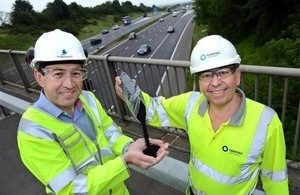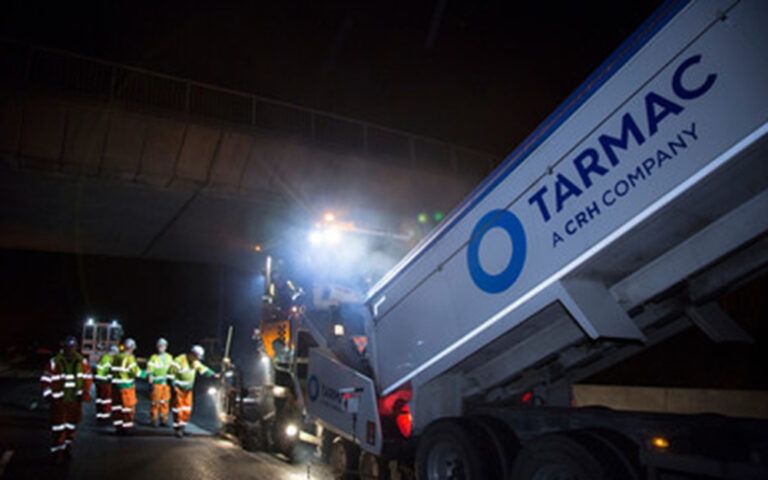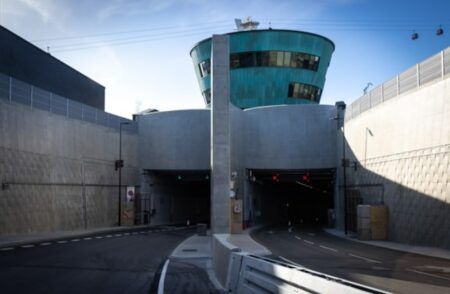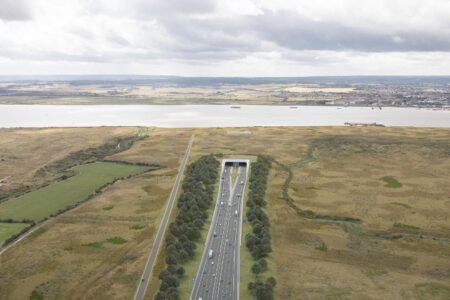Highways England (HE) is continuing its research into the use of recycled waste materials in road surfaces with the start of trials of granulated tire rubber that has been used to repave a section on the M1 motorway in the East Midlands.
A section of motorway between junctions 23 to 22 on the southbound carriageway of the M1 near Leicester has been laid with the new road surface by Tarmac, a UK supplier of building materials and construction services. HE is funding the trials into the new asphalt mix to see if the environmentally-sound innovation could be the way forward for future road surfaces. The trial on the M1 will test the effective durability of the road surface on a highly trafficked section of the country’s motorway network. The agency is also currently conducting trials of a new road surface using recycled plastic waste in a £1.6m (US$1.9) project that is testing the product on a section of the A7 in Cumbria.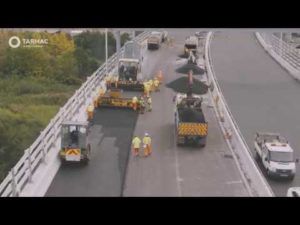
HE notes that the use of waste tires in roads has both economic and environmental benefits. Some 40 million waste tires are produced every year in the UK and over 500,000 disused tires shipped out of the country each year to be landfilled. The European Union’s (EU) rules ban the disposal of tires in landfill sites, so they are generally shipped to the Middle East and Asia. There are over 7 million tires filling one Kuwaiti landfill site which is so vast that the ‘tire graveyard’ is now visible from space.
Tarmac is believed to be the first company in the UK to have developed an asphalt technology that recycles tires by shredding them and then adding the granulated rubber to the mix. It is estimated by Tarmac that up to 750 waste tires could be used in every kilometer (equating to 1,200 tires per mile) of road surfaced with the new material, depending on the thickness of the road.
“We are committed to investing in innovation to help us meet the economic, environmental and efficiency challenges we face in our changing world, and also to delivering environment improvements as we strive to ensure our road network works more harmoniously with its surroundings,” said HE’s corporate group leader, Martin Bolt, who oversees innovations projects in the Midlands region. “This trial could well be the first step to rapidly reducing the number of tires piling up in the UK and beyond. The economic and environmental potential of this new asphalt is significant, and we are delighted to be working with Tarmac in this trial.”
Tarmac’s managing director, Paul Fleetham, added, “Technical innovation has a key role to play in improving the environmental performance of our roads. As a previously overlooked waste stream, used tires offer a significant opportunity to unlock the benefits of a circular economy. There has been a very positive response to our rubberized asphalt since the first local authority trial was announced in May and we’re very pleased to be working with Highways England to explore its potential to support the sustainability of the strategic road network.”